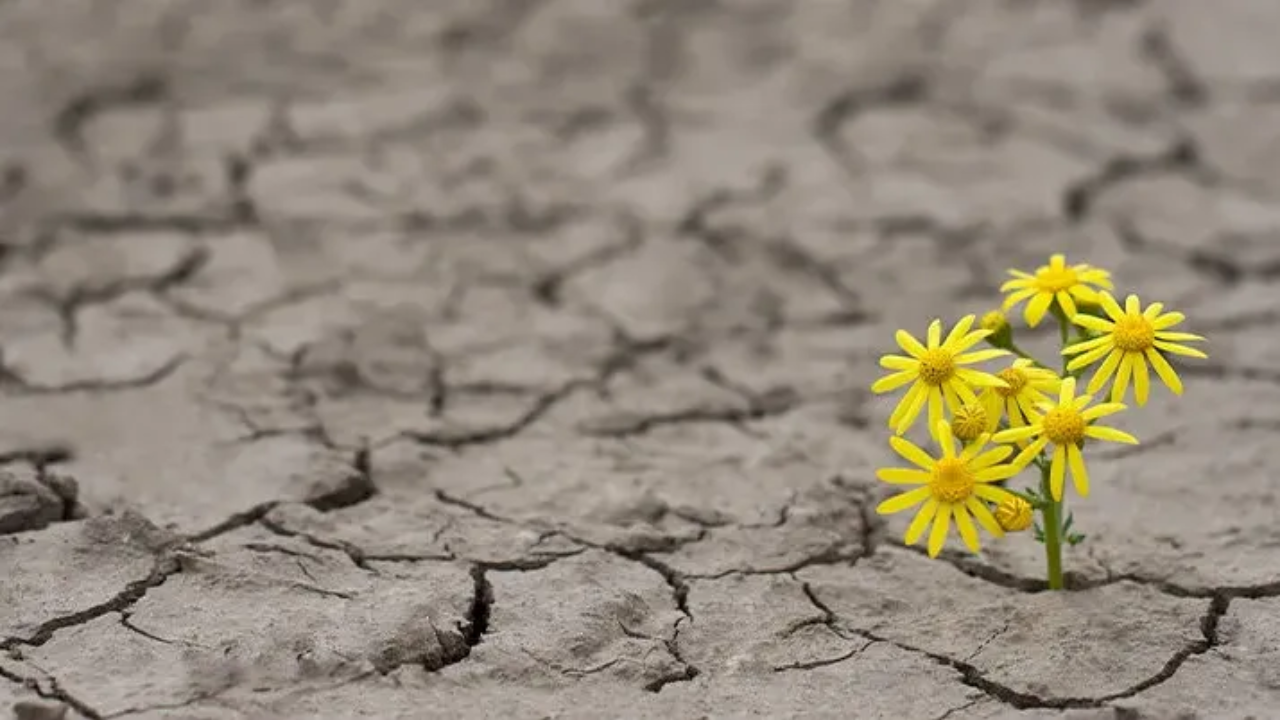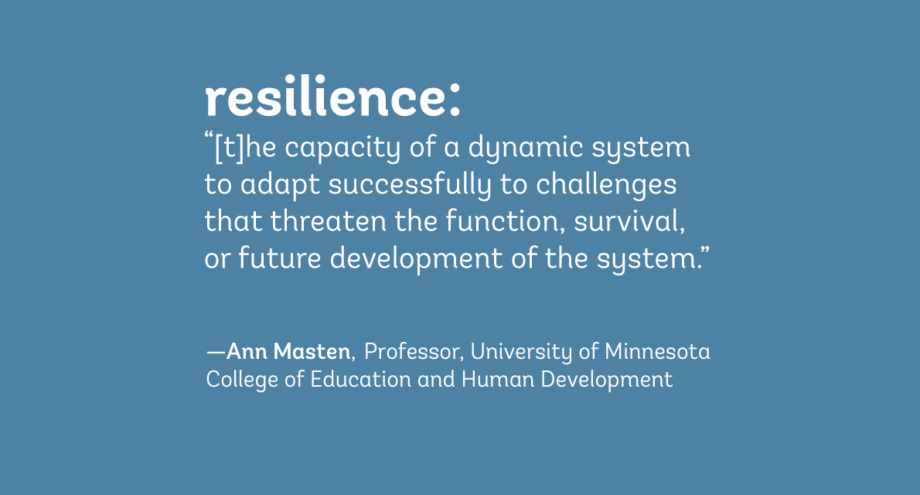Resilience
Oct 29, 2019
It's been a while since I've posted anything due to some stuff getting in the way of other stuff, but I'm back and I want to talk about something I'm very interested in, resilience. I strive every day with every patient I see to try to restore, improve, or enhance their resiliency in the face of their pain and/or disability. This may be by encouraging them to continue with activities or tasks that hurt, or getting them to exercise a little more, or just to make some small lifestyle change.
However, after reading this excellent article on resiliency here I've had a rather sudden and dramatic realisation that I've probably NOT been doing this as well as I thought, and I have probably been approaching it in completely the wrong way.
In this article, Dr Ungar a professor of social science and a family therapist eloquently highlights how an individual can have all the internal resources of resiliency such as knowledge, motivation, and a plan, yet these will be of little use without a supportive environment in which to action them in. He also points out that if external resources are not available then we are better off trying to change these first before we try to change individuals.
Striving to improve the ability of an individual to continue on in the face of adversity, such as pain, disease or disability will just not work when their families, workplaces, communities, healthcare providers, and governments fail to provide sufficient resources, care, or support.
This realisation hit me like a tonne of bricks! There I've been for years trying to get my patients robust and resilient to their pains and disabilities, yet there I've been largely ignoring and overlooking their environment that may impede, limit, or even prevent it.

This article has made me recognise that I've been getting frustrated with some patients and rather harshly and unfairly blaming them for having a lack of resiliency when this may have been more due to factors outside of their control rather than any fault of their own.
Are you really resilient?
This article has also made me reflect on my own resiliency. I like to think of myself as a pretty resilient person having overcome my fair share of issues in life such as being bullied through most of my school years, suffering unexpected family bereavement, a breakdown of a very close meaningful relationship, a sudden and unexpected loss of employment forcing a complete career change. I used to think that I overcame these issues through my resilience and robustness, and I suppose I did to an extent, but I can now see that my own resilience is largely due to my environment and social context.
The first thing to consider is that I am a middle-class white heterosexual male, meaning that I am already in a more advantageous position than many others due to long-standing, hard-wired prejudices and biases in our society. I also come from a loving and supportive family who work hard and although not the wealthiest have never had to go without much. It's these environmental and social factors that I now recognise have mostly made me resilient, or have they?
I do now wonder how I would behave and cope if I didn't have these experiences and opportunities growing up and found myself in other difficult situations such as living in a different social class, suffering a sudden chronic injury or illness, or being made homeless. I recognise its all well and good me talking about how resilient I think I am whilst sitting on my comfy sofa, with my central heating on, drinking a glass of red wine, whilst blogging on my Macbook!
When it comes to trying to understand resilience in others I think a good place to start is to recognise that for most people resilience is nurtured not inherent. That is it's far easier to be a tough, robust, irrepressible fucker when your upbringing and environment allow it.
Unfortunately, we are now living in an age of dissolving resiliency due to our increasingly easier upbringings, lifestyles, and environments. Our society is losing sight of what is difficult, tough, and challenging and as a consequence, we are becoming less tenacious, hardy and healthy.

As health care professionals we need to recognise when a patient's background and/or their environment is not conducive to them being resilient and try to improve this first before attempting to improve the individual. This may simply mean offering them more time, support, and encouragement, not getting frustrated or annoyed when they don't or can't do their home exercise program, and being more patient and understanding when they take longer to progress.
Hindsight
In hindsight, I now think I have been guilty of not supporting some patients as well as I could have who I thought lacked willpower, commitment, and resilience. I often couldn't understand or tolerate those who didn't do the simplest of rehab exercises I gave them, or who came up with 'excuses' as to why they didn't do them.
However, I can now see that perhaps their environment and current situation weren't suited for them to commit or engage with a simple rehab program or lifestyle change, and perhaps my frustration and lack of support was the worst thing I could have done for them. Looking back now what I should have done is try to create a more stable and encouraging environment for them to become more resilient in by asking them to come and do their home exercise program with me supporting and motivating them along the way.
I know this sounds contradictory but for some people to become resilient they need others to help them become resilient. This is where physios and other healthcare providers need to take a close look at each individuals situation and background and decide if they need to step up and do more to help develop resiliency.
Don't get me wrong, I'm not saying we need to suddenly start getting all those who have missed a weeks home exercise plan in 3 x week for 6-12 months giving them life coaching and cognitive behavioural therapy along the way. But I do think we need to with those whose environments and current situations are not the best for them to engage in regular rehab or lifestyle changes offer them more than we currently do.
The huge problem here is, of course, the lack of resources and staff to do this. Currently, the UK's National Healthcare Service just doesn't have the capacity or ability to offer many patients in persistent pain or with a long term disability extended regular care and rehab to any great extent. And I don't I think private practice should do this, as there is a real risk of financial gain and profits overriding patient care and treatment.
Resilience takes resilience
Another thing to consider is that it takes a lot of resilience to develop someone else's resilience. To ask physiotherapists or any other healthcare professional to become better at developing patients' resiliency they will also need a supportive nurturing encouraging environment, and this is also currently lacking everywhere across the board.
Most physios are simply not given the time, resources or support to develop resilience in the patients they see. Many physios in both the public and private sectors are asked to see as many patients as they can with the primary focus on productivity and profits and patient outcomes and results coming second.
I know this first hand from 15+ years of experience working in both the public and private sector, being asked to see 15-20 patients a day, 5-6 days a week, with any gaps in my diary or dip in my 'utilisation' being questioned by my managers as 'not working hard enough'. I can tell you this is a really shitty working environment and has done shit balls for my empathy and compassion which, unfortunately, meant my patients were the ones who suffered.

Summary
Until healthcare employers, managers, commissioners and of course the governmental big wigs recognise that they need to look after those who are looking after patients better, giving them more time, support and resources nothing is going to change quickly.
But to end on a more positive note I would ask all healthcare professionals reading this to go and read the article on resiliency in full, and the next time a patient says they haven't taken your advice, or done their home exercise programme, take a breath, pause for a second, and before you write them off for having no resilience ask yourself, would you if you were in their shoes!
As always thanks for reading
Adam
Stay connected with new blogs and updates!
Join my mailing list to receive the latest blogs and updates.
Don't worry, your information will not be shared.
I hate SPAM, so I promise I will never sell your information to any third party trying to sell you laser guided acupuncture needles or some other BS.

